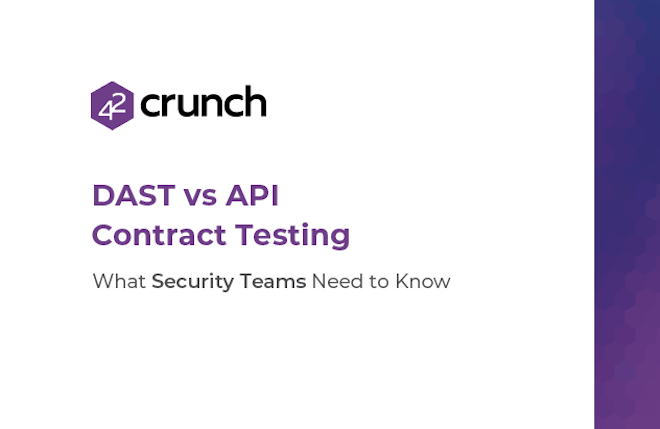DAST vs API Contract Testing What Security Teams Need to Know

In traditional application security, broad test coverage is often achieved by running large suites of generic attack payloads. But in API security testing, relevance is more important than volume, and in fact irrelevant tests often do more harm than good.
The issue here is about context. DAST tools operate without awareness of an API’s structure, data model, security requirements, or intent. Instead, generic security rules come pre-built with the tool, inherently lacking context or relevance to the APIs under test.
Some DAST vendors make overtures about “supporting API contract testing”; however, in practice, this “support” is proving to be very superficial. In reality, the core testing approach remains unchanged: DAST tools still rely on trial‑and‑error probing, sending large volumes of generic payloads and using statistical heuristics to guess when a vulnerability might exist.
By contrast, 42Crunch offers security teams API contract testing, which offers a more accurate, scalable, and effective approach. Readers will gain a clear understanding of:
- How contract-based API security testing works,
- Why it’s better suited to today’s API threat landscape
- How it enables more reliable security outcomes with less noise and effort
Secure Your APIs Today
#1 API security platform
